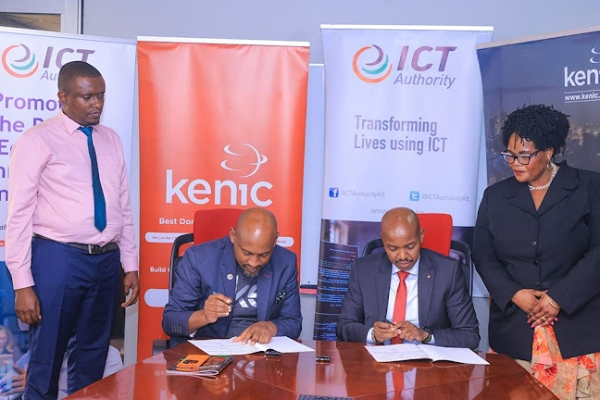In the context of digital transformation, African countries have long prioritized high-speed connectivity. However, with the numerous challenges inherent to the digital economy, attention is now shifting towards new areas, including digital sovereignty.
Kenya’s Information and Communication Technology (ICT) Authority announced on Wednesday, 4 September, the signing of a three-year Memorandum of Understanding (MoU) with the Kenya Network Information Center (KeNIC). The MoU focuses on promoting national digital standards, enhancing the .ke domain name, and training ICT Authority staff on the Domain Name System (DNS) ecosystem and Domain Name System Security (DNSSEC).
Stanley Kamanguya, CEO of the ICT Authority, stated that “this MoU will help us address key issues as we progress in the era of digital transformation, particularly focusing on the training and reskilling of our staff, as well as enhancing digital governance.”
In Kenya, the government has been steadily advancing its digital transformation agenda for nearly two decades. While much of the focus has been on building infrastructure to enhance internet connectivity, efforts have also extended into other key areas. One such initiative is the promotion of the .ke domain, to increase its adoption to elevate Kenya's international visibility and establish a stronger digital identity on the global stage.
According to the Communications Authority of Kenya (CA) in its statistical report on the national telecoms and digital market, for the first quarter of 2024, 108,338 domain names were registered. Of these, 84.8% were held by businesses, accounting for 91,818 domain names, while government institutions used 752 domain names.
For KeNIC, effectively equipping ICT Authority staff on matters related to the national domain name is a step towards creating a secure local cyberspace that supports the activities of various digital users in the country.
Hikmatu Bilali



















